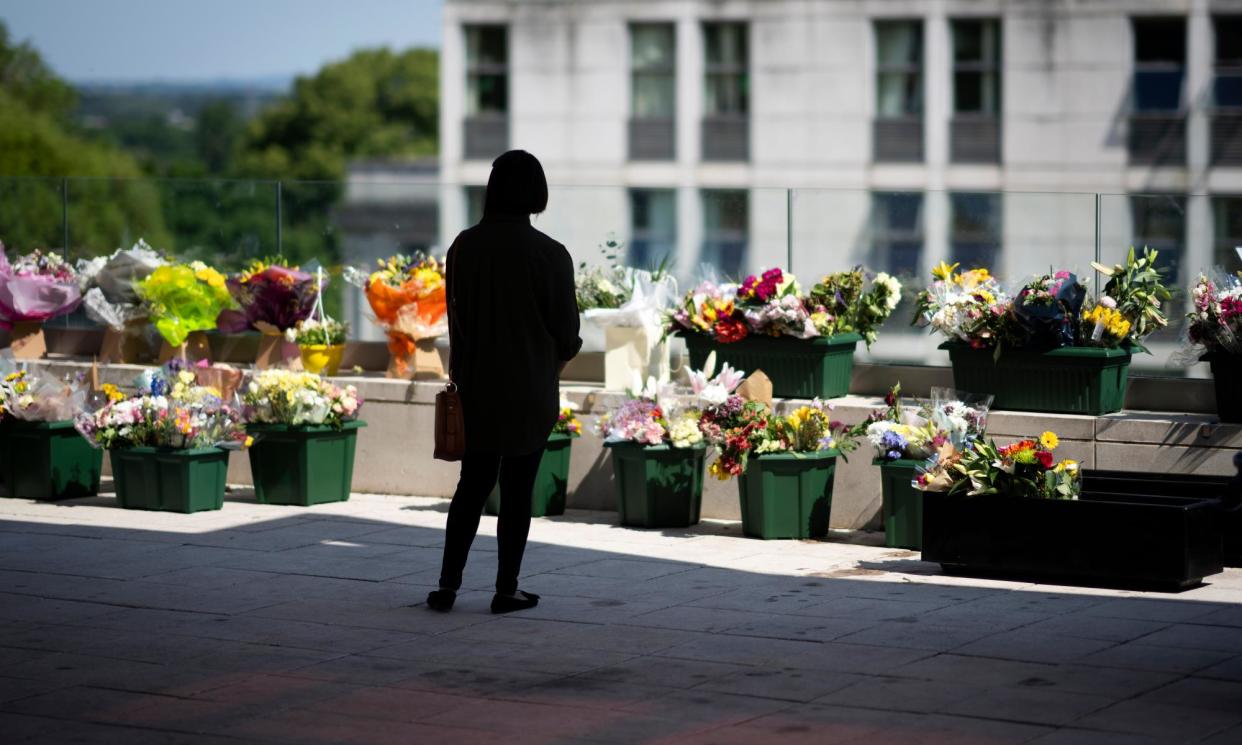Nottingham attacks: ministers urged to consider new homicide category

Ministers are being urged to review how homicide is categorised, after a review concluded that the Crown Prosecution Service was correct to accept the Nottingham killer Valdo Calocane’s manslaughter pleas.
A review of how the CPS handled the case against Calocane found that it complied with the law, but it has recommended that the government look at categorising homicide in three tiers, as opposed to the current two-tier system of murder and manslaughter.
Calocane killed Barnaby Webber, Grace O’Malley-Kumar and Ian Coates, and seriously injured three others, in a spate of violence across Nottingham in the early hours of 13 June last year.
Although initially charged with murder, he pleaded guilty to manslaughter and attempted murder on the grounds of diminished responsibility due to his diagnosis of paranoid schizophrenia, and was sentenced to a hospital order.
The victims’ families strongly criticised the CPS for accepting Calocane’s guilty pleas to manslaughter, saying they had been “rushed, hastened and railroaded” into the decision and that “true justice had not been served”.
Emma Webber, Barnaby mother, said the family was “disappointed but not entirely surprised” by the review findings. “Until the law changes in this country, the diminished responsibility charge and plea means that murderers can get away with murder,” she said.
The report by His Majesty’s Crown Prosecution Service Inspectorate (HMCPSI), published on Monday, found that the CPS’s decision to accept the manslaughter pleas was “correct” and the CPS had met its obligations to the victims’ families.
However, it suggested the government should consider introducing a three-tier categorisation for homicide, which would include second-degree murder, with a discretionary life sentence, for those convicted of murder with diminished responsibility.
This was previously recommended by the Law Commission in 2006 and rejected by parliament.
HMCPSI’s chief inspector, Anthony Rogers, said: “To better support victims and increase public trust, we call on the government to consider amending the homicide law, review the support provided to victims of crime in serious cases such as this, and provide greater clarity about the role of victims in the criminal justice system.”
Rogers said that under a three-tier system, Calocane would have been charged with second-degree murder, which “might feel like semantics but it would really matter”.
“It’s really very difficult for everybody to understand how somebody who killed and absolutely went out to murder people is not charged with murder,” he said, adding that he hoped the recommendations would become manifesto commitments in the upcoming general election.
The report also found that the CPS could have improved its engagement with the families, who it said felt “unsupported and secondary” to the process.
It recommended that the CPS review its use of the word “consult” when describing its interactions with the families, as it is only obliged to inform or explain its decision.
Rogers said there were some “false expectations” of the rights of victims in the criminal justice system. “Victims have the right to be listened to, informed and heard, but they don’t have the right to be consulting with the CPS to try to get what they think they should have the right to have,” he said.
The report also said the CPS should ensure it treats all families with “equal care and consideration”, after finding that the sons of Ian Coates were “aggrieved and disappointed” to have not been invited to some meetings.
The report stated: “We are aware that our findings will be disappointing for the families. They were clear when we met with them that they felt let down, that they had no voice, and that they had been treated as secondary parties in the criminal justice system.”
Julian Hendy, the director of the charity Hundred Families which supports families affected by mental health homicides, said the report was “disappointing”.
“The HMCPSI do not appear to have critically evaluated the evidence. There are serious questions about the quality of evidence and decision making in this case that remain unanswered,” he said.
“This report is clearly a missed opportunity. It will do little to reassure the affected families that agencies are really learning from this tragedy.”
Stephen Parkinson, the director of public prosecutions, said: “In tragic and complex circumstances such as these, the CPS has difficult decisions to make but must always act with independence and professionalism. I believe that our team did so in this case, and with considerable dedication and commitment. We will carefully consider the report’s findings.”


